UPDATE: This post now has some corrections on figures and some addition commentary below (29/11/2019)
Last week I wrote about the absence of European policy in the LibDem’s manifesto and what this told us about the state of things.
This week I’ve tried to be rather more systematic about it all, so I’ve been coding manifestos in recent days, to gauge the exposure of party programmes to the EU.
I’m interested both in how much of the programme is reliant (in legal and political terms) upon the outcome of Article 50, and how much of that reliance is itself dependent upon the EU’s agreement.
The former might tell us something how about well integrated European policy is into the domestic arena (and how much the EU actually constrains public policy), while the latter might speak to the extent to which the EU matters, even in a post-membership scenario.
Importantly, I’ve not considered the economic constraints of particular Brexit plans, although these are potentially considerable for both the Liberal Democrats and the Brexit Party: I’ve put notes on this in their figures.
The overall picture looks like this:
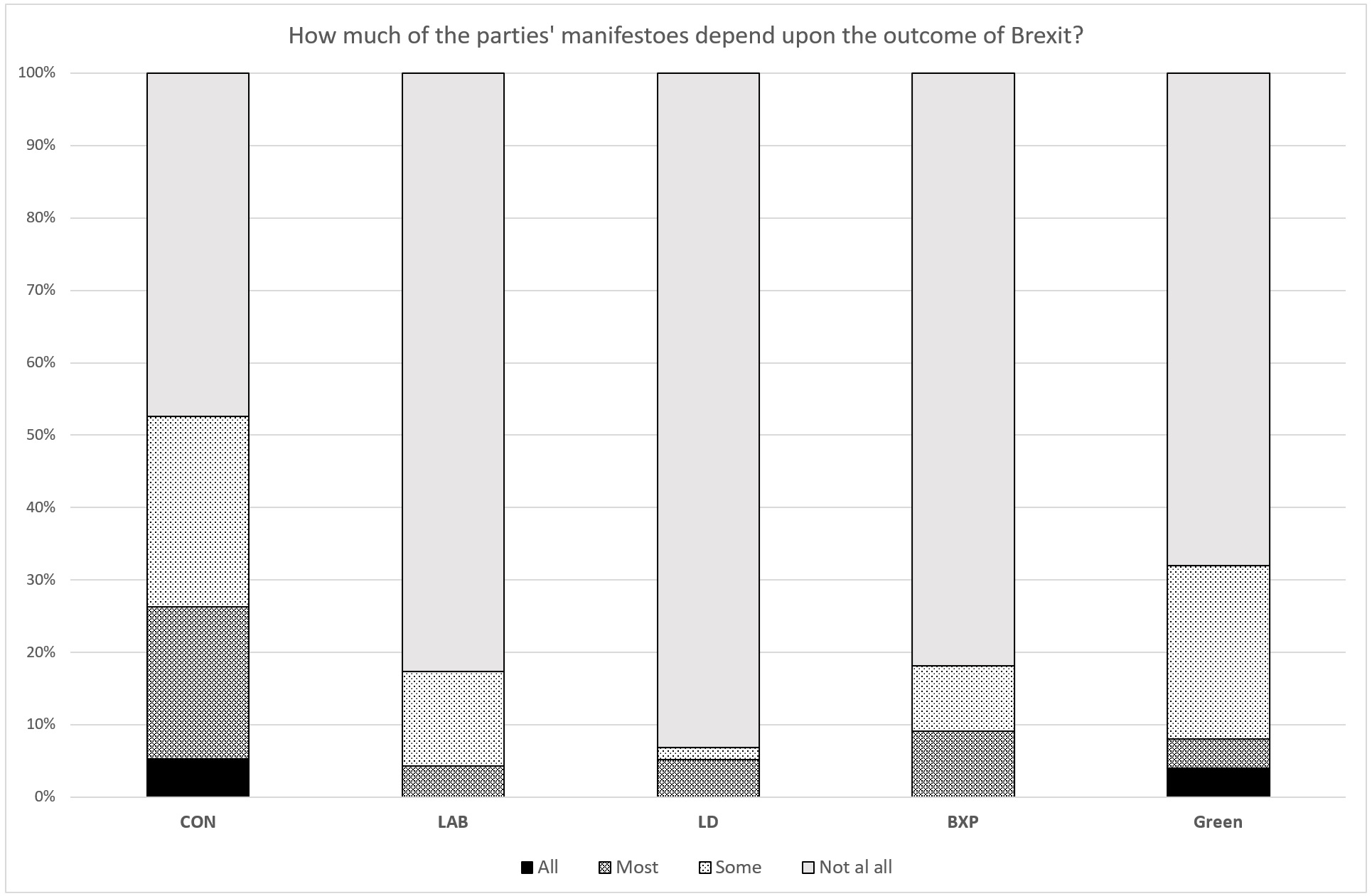
Coding was done by taking the sections of each manifesto, then evaluating any dependency upon the intended outcome of Article 50 (no-deal exit for the Brexit Party; negotiated withdrawal for the Tories; a referendum without preferred outcome for Labour; and Remain for the LibDems and Greens).
Those sections vary a lot in number, from the brief Brexit Party ‘contract’ to the voluminous and overly-articulated LibDem tome.
Rather than count specific pledges, sections were assigned to one of four categories: ‘not at all’ and ‘all’ are self-explanatory, while ‘some’ was used when one or two elements presented the dependency, and ‘most’ when a major part of the section required it. I’ve put the coding here (including Plaid and SNP too).
It’s impressionistic, but it’s better than a simple eye-balling: if people have more rigorous ways of measuring such things, please do get in touch.
And?
As the summary shows, most of the manifestoes don’t require any particular outcome to Article 50: there are hundreds of pledges that could happen today without hindrance from the EU, just as they could also happen in a no-deal scenario, and all points in-between.
That reflects a number of things.
Firstly, most public policy isn’t determined at a European level, so it’s unsurprising that this happens at every election.
Secondly, the uncertainty about the outcome of Article 50 has also had a dampening effect. You see this most clearly with the SNP document, which uses language of lobbying to keep certain features of EU policy/alignment, rather than making commitments. But it’s also true in other cases too: witness Labour’s sketching out of two possible futures in its Brexit section.
Thirdly, it reflects a degree of wishful thinking. For Remain parties, things might just go back to how they were; for the Brexit Party, the EU might disappear altogether; and for the Tories, the deal they’d strike would unlock a load of doors.
The Tories do stand out here, both for the extent to which their plans rely on a deal and for the uncertainty about what that deal will cover: most of the sections indicated will be very dependent upon what the scope of the future relationship might be.
Importantly, the EU looks set to have a role in any of the possible Brexit futures mapped out by the parties. That’s because many of the dependencies have implications for the EU, either through membership or through a negotiating post-membership relationship. That in turn suggests that parties are going to have to keep a notion of a European policy very much in mind.
Equally importantly, this exercise doesn’t capture the opportunity cost effect of Brexit: because it’s taking up so much time and effort in Westminster and Whitehall, there has been a slowing-down of work in other areas, so that represents another indirect effect, on top of the economic costs already mentioned.
Pictures!
To map this out in more detail, here are the summaries for each of the national parties. PDF versions are available here .
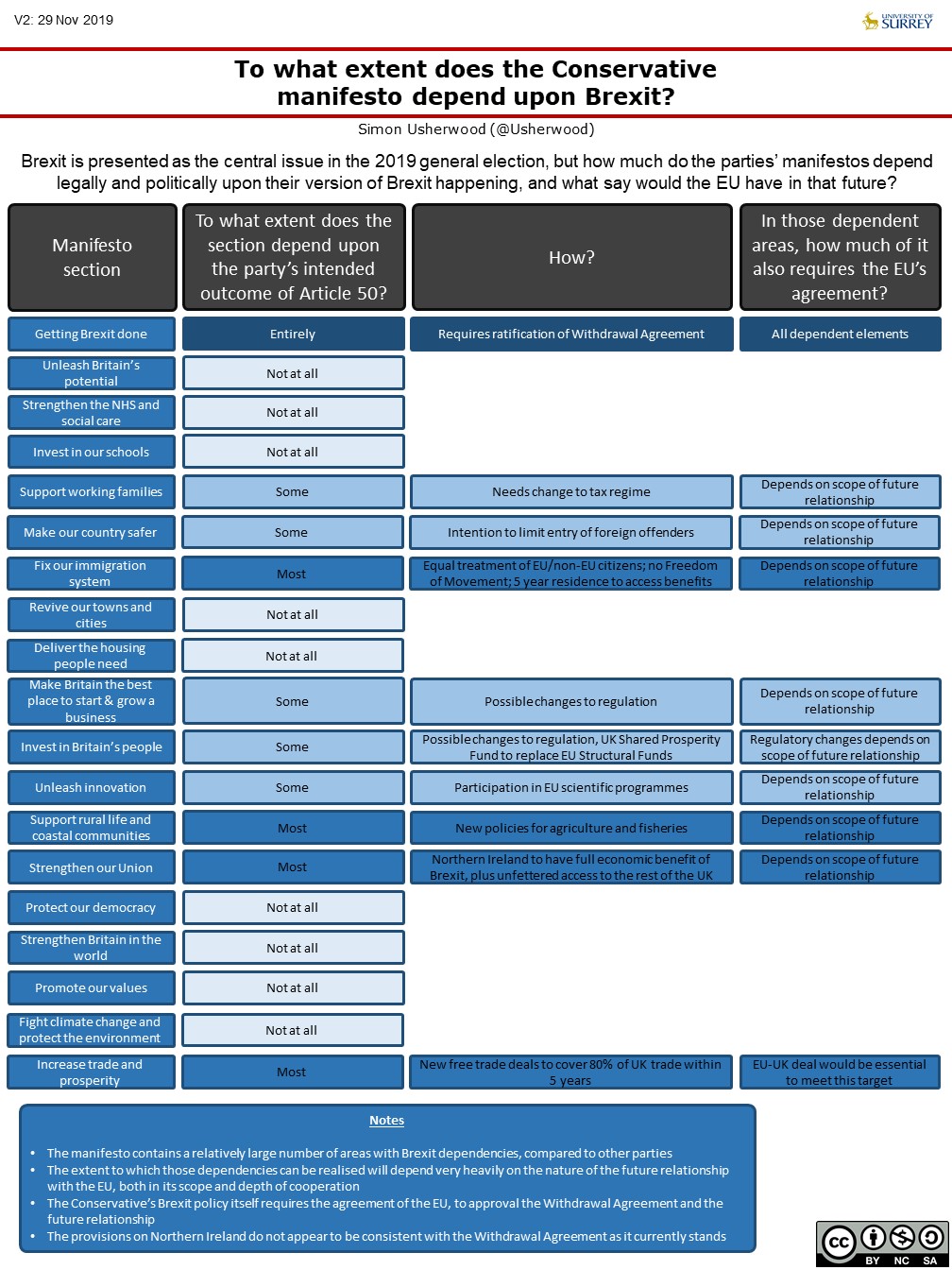
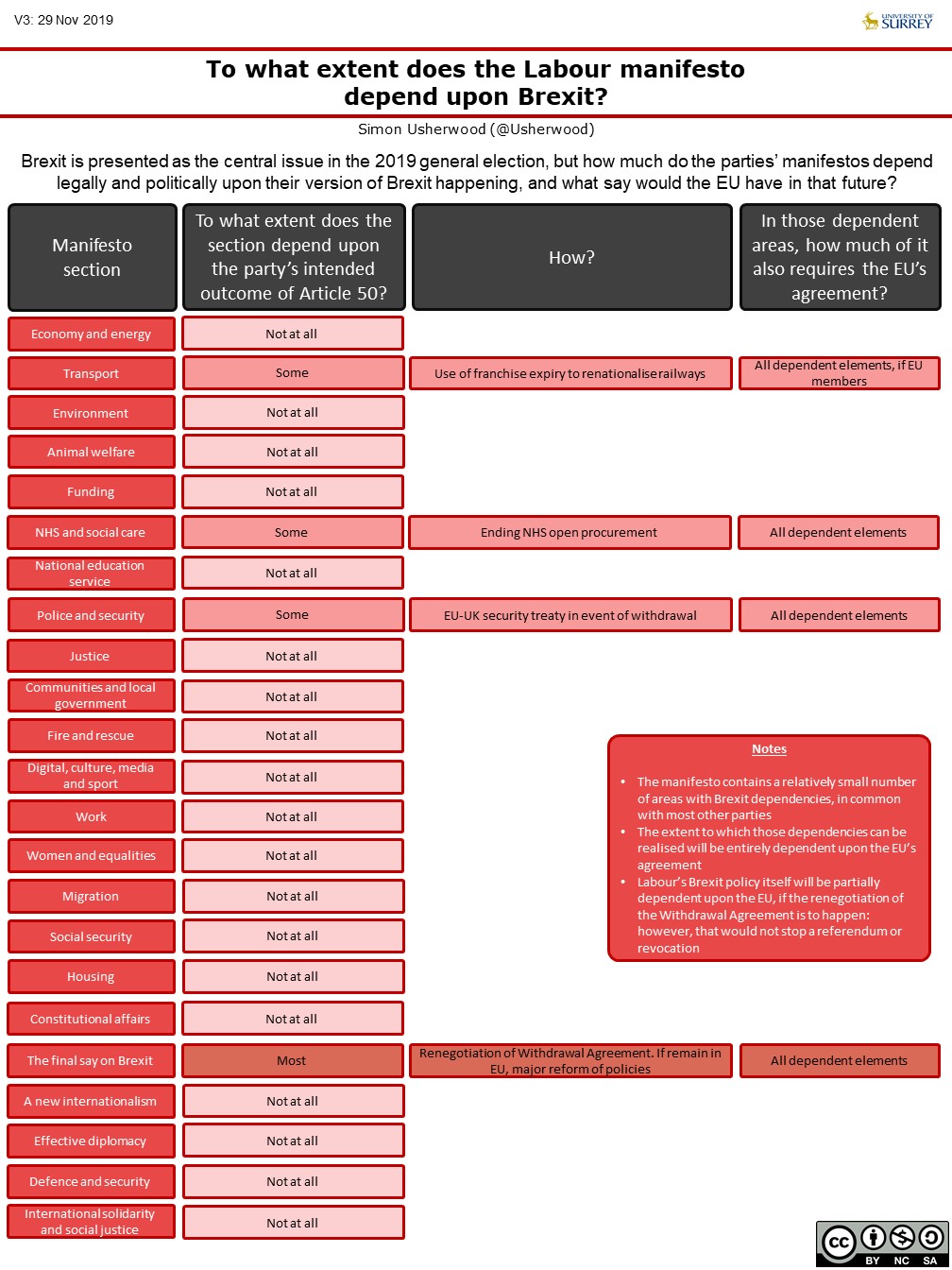
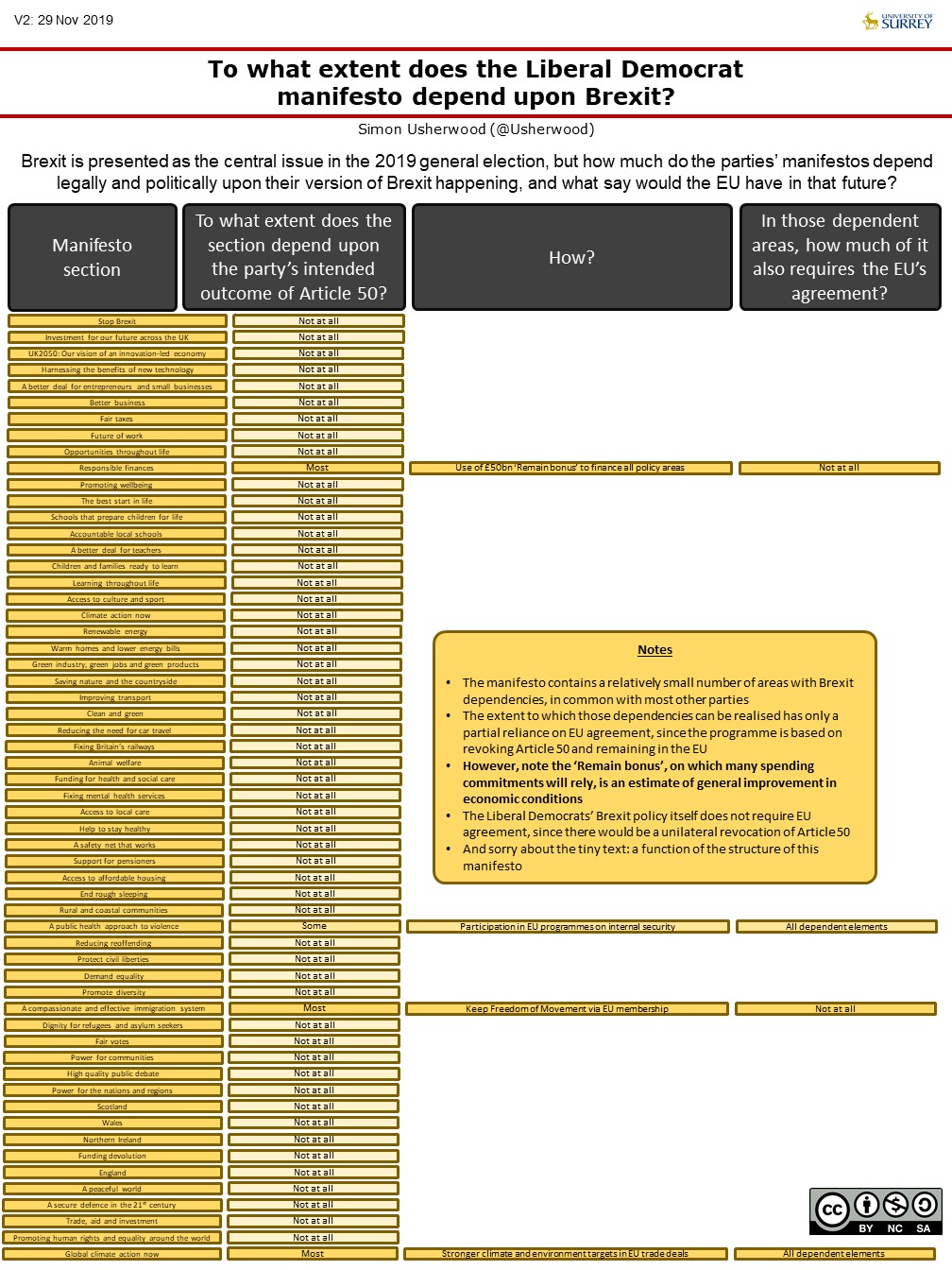
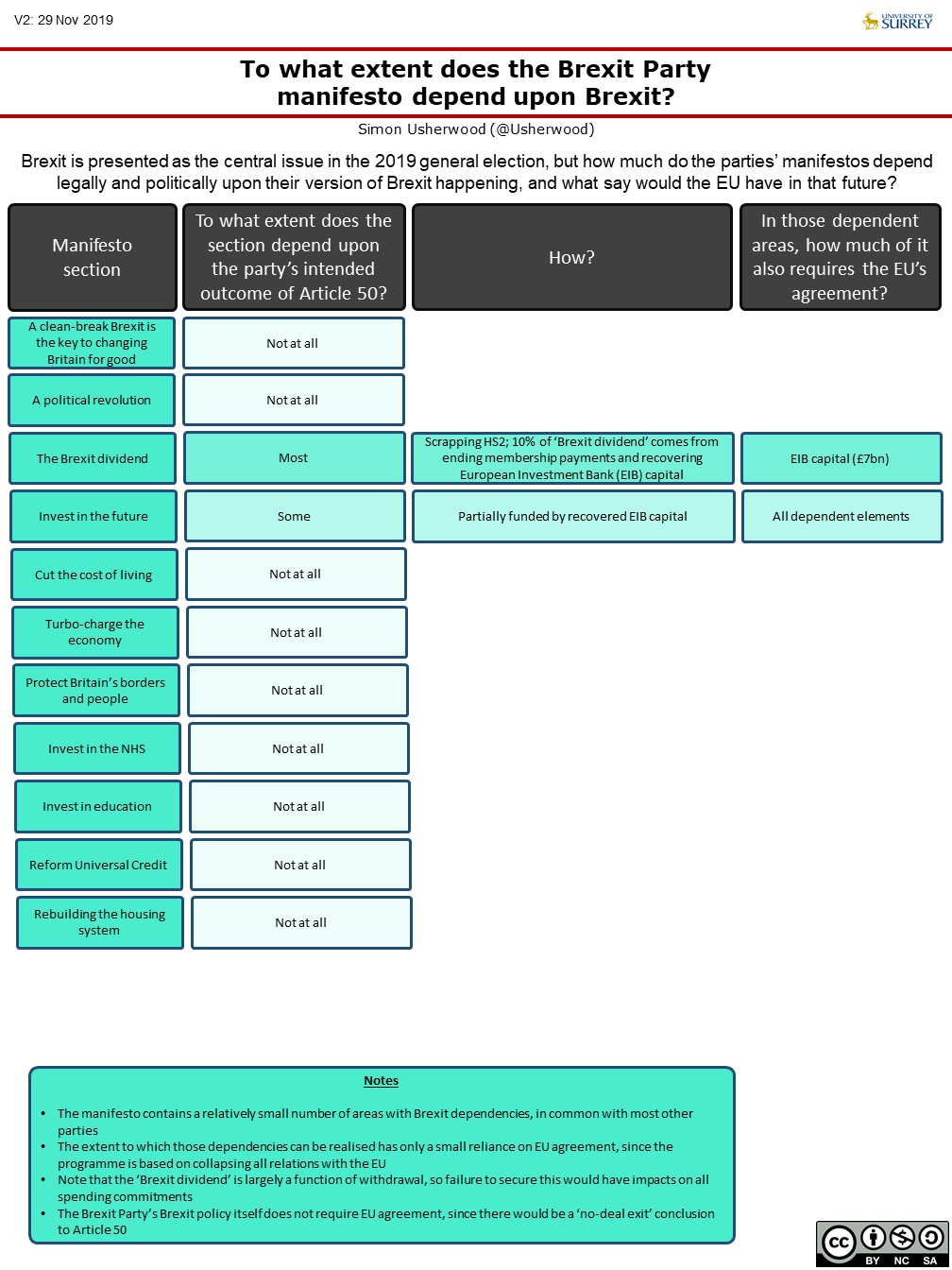
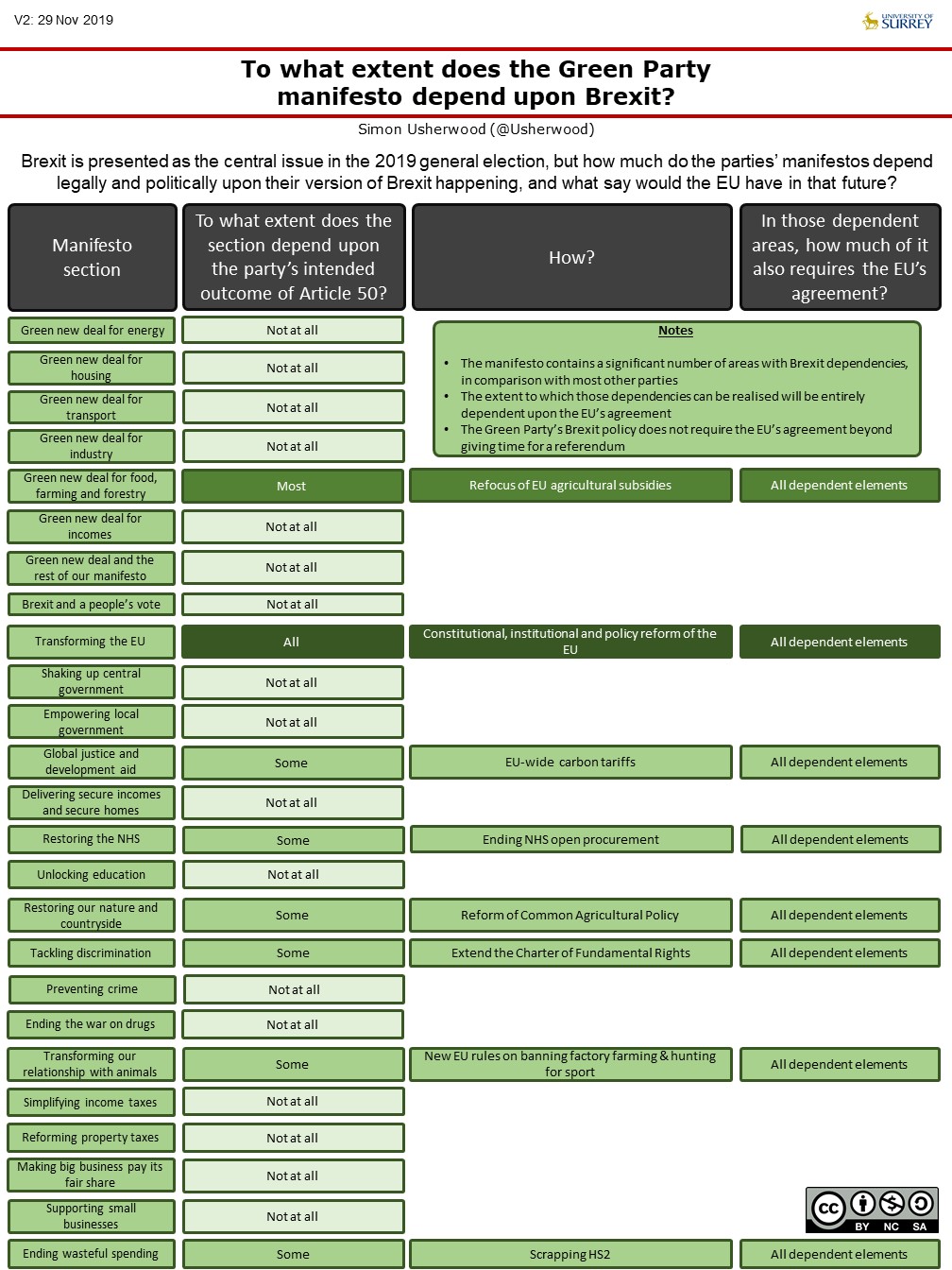
(Thanks to British_Citizen_X for their help on the changes)
